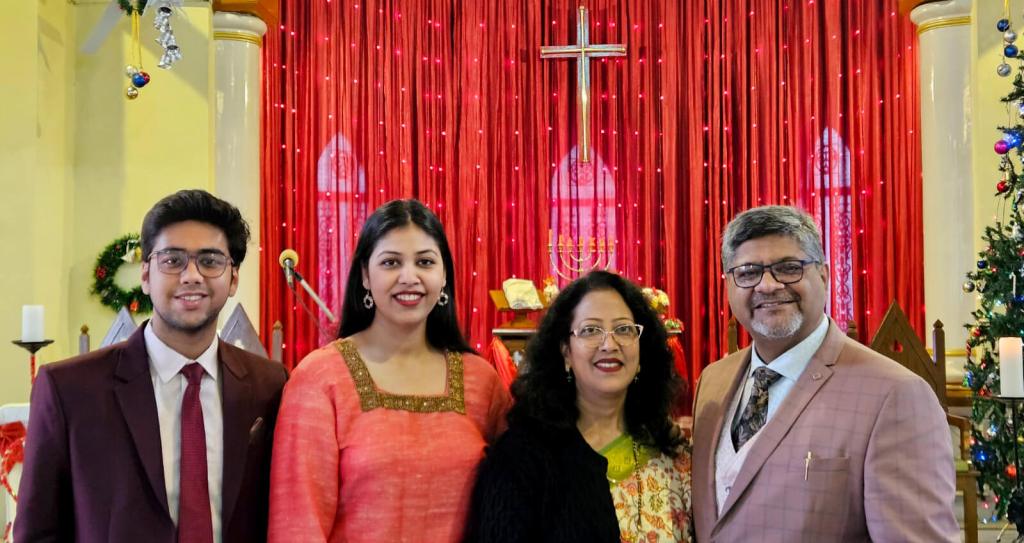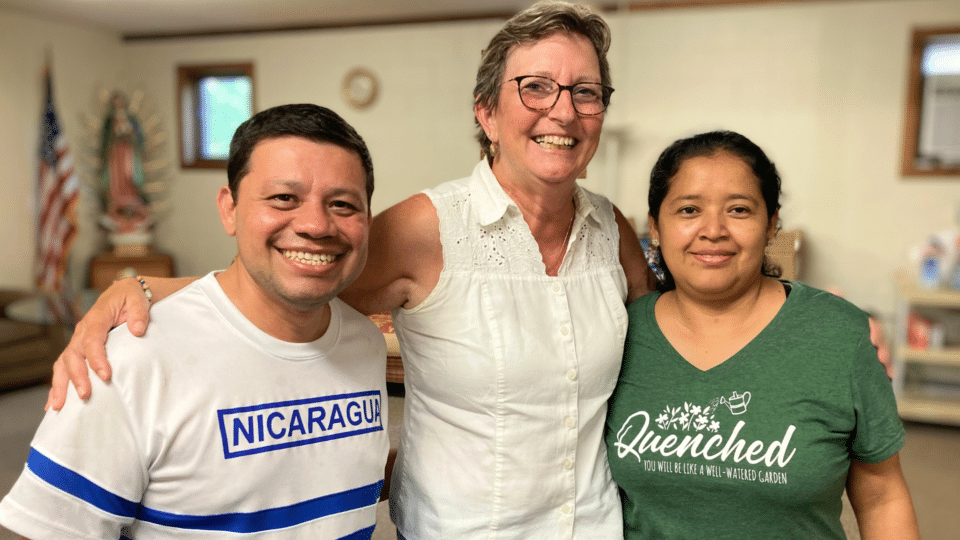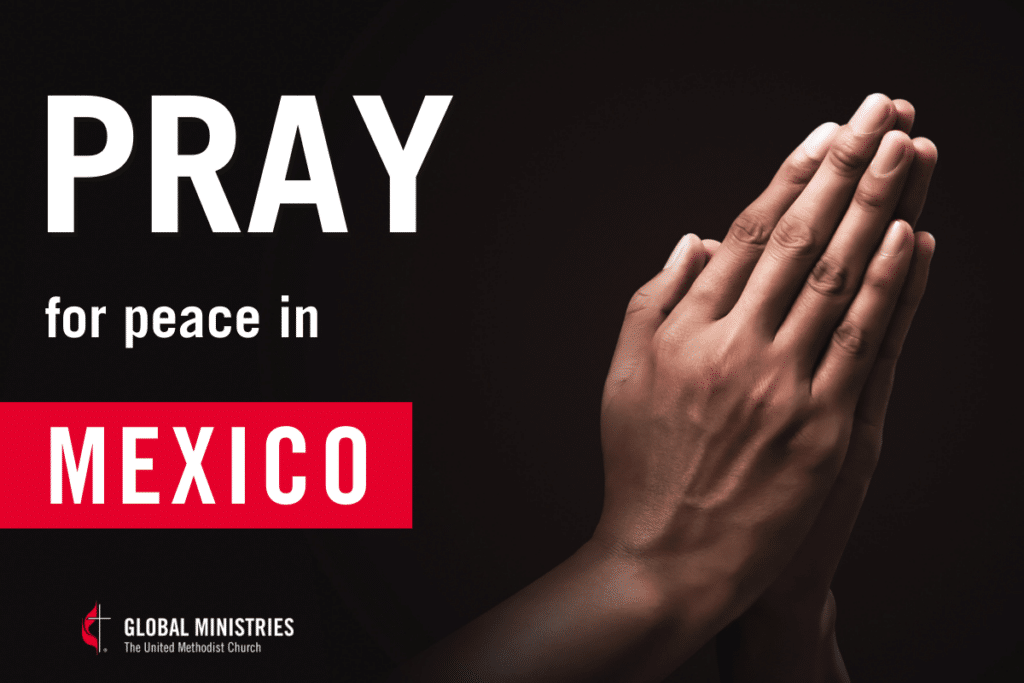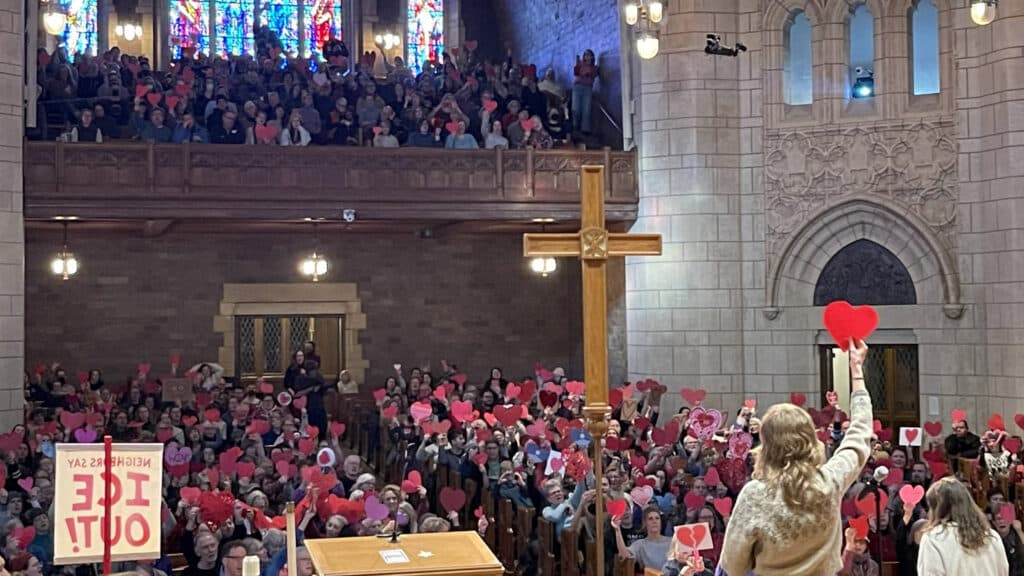ATLANTA — Ashnita Shakina Maxton grew up as a pastor’s daughter in the Uttar Pradesh, India. In fact, she says she comes from a long line of Christian missionaries and pastors. For the past 14 years her family has lived in Lucknow where her father pastors a Methodist congregation. Maxton found it difficult to leave India to travel to the United States to begin a doctoral program in psychology at Texas Tech University in Lubbock, Texas, in 2022.
“I am pursuing my Ph.D. in Addictive Disorders and Recovery Studies, focusing on the concepts of positive psychology, such as forgiveness, spirituality, and temptation in relation to addiction and recovery among college students. I developed my research focus in this area with a desire to serve my community and all the young individuals struggling with addiction,” Maxton explains.

“And, coming to the U.S. was the first time I have ever left my home,” she continued. “I’ve never been out of my country anywhere else. And the first time that I do, I come here to the U.S. all by myself.”
It seems she took a leap of faith in many ways, to find the kind of program she was looking for and a professor and department that considered the roles forgiveness and spirituality and temptation play in recovery. After she had committed to the program and spent a year in the U.S., she reached back to her bishop in Lucknow, Bishop Subodh C. Mondal, to see if the Methodist Church in India could help to sustain her studies. Bishop Mondal wrote her a recommendation and suggested she apply for the World Communion Scholarship through Global Ministries.
A desire to help others reach their full capabilities
When asked what motivated her to devote her graduate studies to the field of addiction and recovery, Maxton said this is a question she is often asked, particularly once she arrived in the U.S. “People ask me if I’m studying addiction because of something in my personal experience. Did I know someone who was addicted? They are always a little surprised when I say I don’t. It is just a general and genuine interest I have in this field and empathy for people struggling with addiction.”
As part of her master’s program in India, Maxton participated in an internship at a rehabilitation center. “It was something I never did before, a completely different experience” she said. “I’d never been around a hospital or a rehabilitation center, per se. I came across a lot of young people…older people as well…but mostly, there were a lot of young students being admitted. It was hard to see some of them.”
Some students, even though they were admitted to an in-patient hospital and battling addiction, were still trying to complete their studies, and would leave the hospital for a day or two to take their exams.
“I felt like there was so much potential in the youth, and when they struggle so with addiction, it hinders them to reach their full capability or achieve their potential,” Maxton reflected. But then, she dug a little deeper.
“In Lucknow, I live next door to a psychiatric hospital, and we share a boundary with that hospital. We have a few windows facing the parking lot of the hospital and I’ve seen people being dragged from the parking lot to the hospital. Their family members bring them. You see people with mental illness, with addiction, with any sorts of psychiatric illnesses being treated in that hospital.
“I’ve seen young children, women and men – it is common for family members to admit their loved ones for treatment. I feel like addiction still carries a stigma in India. If someone finds out there is person in your family who is going through addiction, it brings down your family name. So, in order to conceal and protect the family, people bring their loved ones in the middle of the night or the early morning.
“We are so close to that hospital, I could hear the yelling, the screaming, so, I’ve grown up seeing and listening to that. It’s probably another reason I got into this field.”
A Methodist family connection
It turns out, the psychiatric hospital across the parking lot from Maxton’s church in Lucknow is Nur Manzil, a facility founded by the Rev. Dr. E. Stanley Jones in 1950. Jones, an American who started his missionary career with the Methodist Board of Missions in 1907, had served as an evangelist and theologian in India until his death in Bareilly, India, in 1973, years before Maxton was born.
On a pillar outside Nur Manzil, on a street that the Maxton family must have passed by many times, is a free-standing plaque that reads: “The purpose of the [Nur Manzil] centre is to provide full benefits of scientific psychiatry to all irrespective of race, religion, caste, colour or gender.”

When Maxton completes her studies at Texas Tech in another year, she will return to India to continue her work. She’s still discerning what exactly that work will be. In any case, she looks forward to reconnecting with her church.
“My desire to serve my community has been greatly inspired by the life and ministry of Rev. Dr. E. Stanley Jones. His work of evangelism in India and his effort to make mental health facilities available for people really inspire me. I would like to use my skills and research to contribute significantly to enhancing the effectiveness of positive psychology in promoting well-being, personal growth and recovery for persons living with substance abuse problems.”
For World Communion Scholarship inquiries
The World Communion Sunday offering provides scholarships and leadership development opportunities for international students and U.S. racial-ethnic students who are pursuing advanced degrees. Gifts not only make an impact in the lives of individual students, but also the religious, social and civic communities in which they lead and serve. These funds are administered by Global Ministries in collaboration with the General Board of Higher Education and Ministry.
As Global Ministries and the General Board of Higher Education and Ministry (GBHEM) continue their work of greater alignment, scholarship inquires for both agencies should be directed to the GBHEM Scholarship Office at +1-615-340-7344 or scholars@umcmission.org.
Give to the World Communion special offering at your local church, or connect here to give online and mark World Communion Sunday.




